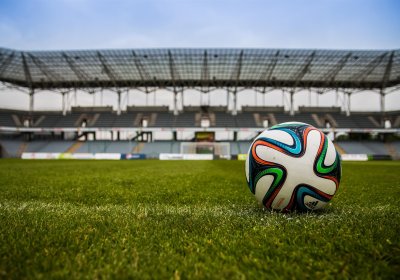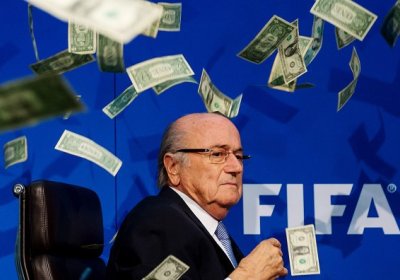Whatever Australia’s reason to deny a visa to the President of the Palestinian Football Association, it is not a good look for Australia or its attempts to woo the world’s major sports events, including football. Khaled Ghannam reports.
International Association Football Federation (FIFA)
The FIFA World Cup, due to begin in Qatar in November, will be stained by one of the highest casualty rates amongst workers in the competition’s history, reports Binoy Kampmark.
It’s been barely noticed, but last month there was an incursion of politics into sports like no other, writes Dave Zirin.
* * *
With little reason, the Israeli government made the decision to cancel the Palestinian national football (soccer) club championship, otherwise known as the FIFA Palestine Cup.
When world football executives receive FIFA’s annual report this year, they will see that US$753,000 is funding a women’s league in Colombia, $588,197 is helping female players in New Zealand and girls in Botswana are benefiting from $341,600.
That’s merely a snapshot of the $270.3 million that football’s world governing body has invested in projects between 2016 and 2018.
Four years since police raided the hotel and offices of football officials and FIFA’s Zurich headquarters in 2015 in a scandal that threatened the organisation’s existence, FIFA is awash with cash.
Bahraini refugee Hakeem Al-Araibi has been held in detention in Thailand since November 27, facing the terrifying prospect of deportation to the country where he was tortured.
World Cup organisers FIFA and its corporate sponsors market their products to the members of the LGBTI community by presenting themselves as allies and advocates for their struggles. But this is questioned by its holding of the 2018 World Cup in Russia and giving the rights to the 2022 event to Qatar.
The Fare Network (Football Against Racism in Europe) is an organisation that tracks racism and homophobia in the football (soccer) world. For the 2018 World Cup in Russia, they set up a series of “diversity houses” for the LGBTQI community and people of colour.
Now in St Petersburg, they have been evicted from the building they were leasing for these safe spaces. Other tenants are also reportedly under instruction not to offer subleases, leaving only the brutal symbolism of a diversity house shuttered.
The Billonaires’ Club: The Unstoppable Rise of Football’s Super-Rich Owners
James Montague
Bloomsbury, 2017
330 pages
At this stage of the 2017 English Premier League (EPL) season, it looks like one of the two Manchester teams will win the championship — and with barely a Mancunian between them. Both Manchester United and Manchester City have overseas owners, overseas managers and overseas-dominated player lists.
In no breast did the prodigious financial corruption of world football’s administrative elite beat more vigorously than that of Chuck Blazer, the head of football in the North and Central American and Caribbean regional body.
Chuck was not called American soccer’s “Mr Big” for nothing. His bottomless appetite for high-calorie nosh gave him a gargantuan girth, which was matched financially in size by his tax-sheltered bank accounts. These bulged with millions of dollars received through fraud, embezzlement, bribes, perks, gifts and inducements.
Not only could he afford to rent an entire floor of luxury apartments in the prestigious Trump Tower in Manhattan, but he preserved one of them solely for the use of his cats.
FIFA, the governing body of world football (soccer), has capitulated once more to intense pressure from the Israeli government. It has removed from the agenda of its upcoming congress the issue of teams from Israel’s illegal settlements on occupied Palestinian land playing in Israel’s national league.
Calls are mounting on FIFA to require Israel’s national league to exclude teams from West Bank settlements or face suspension from the governing body of world football (soccer).
But there are warning signs FIFA may be succumbing to intense pressure to once again give Israel a pass to continue violating Palestinian rights with impunity.
The situation for Palestinian and Arab football (soccer) players in Israel, the West Bank and Gaza has, for some time, been dire.
On one side of Israel’s Apartheid Wall, within the formal borders of Israel, segregated youth teams, racist abuse, and heckling — including charming chants such as “Death to the Arabs” — are frequent. On the other, in the Palestinian territories occupied by Israel since 1967, checkpoint detention, jailings, and the bombing of stadiums have become regular features of what is supposed to be the people’s game.
Given the powerful role that football plays as a point of community cohesion in the West Bank and Gaza, this everyday violence feels like a full-frontal attack on civil society, normalcy and hope.
- Page 1
- Next page











